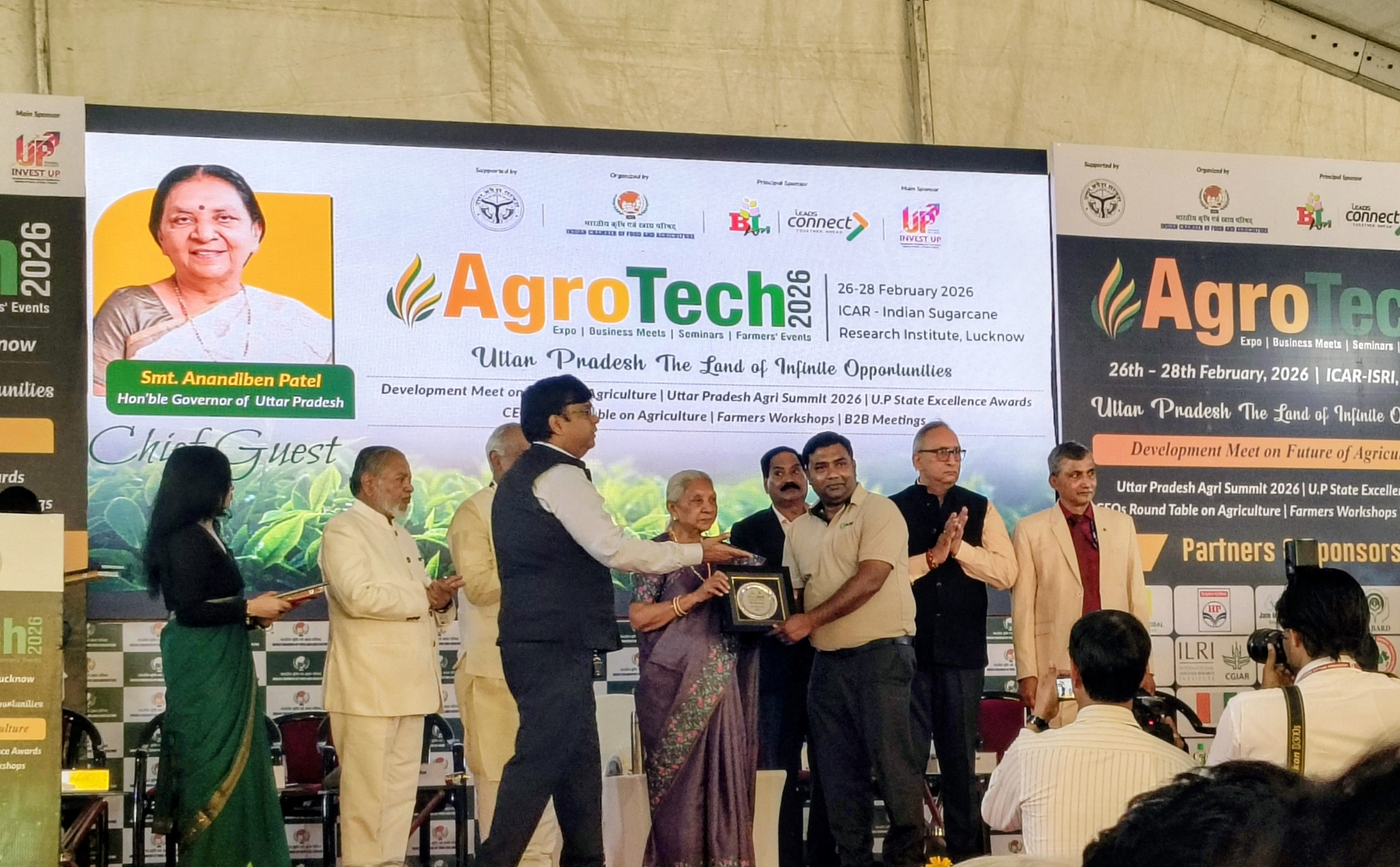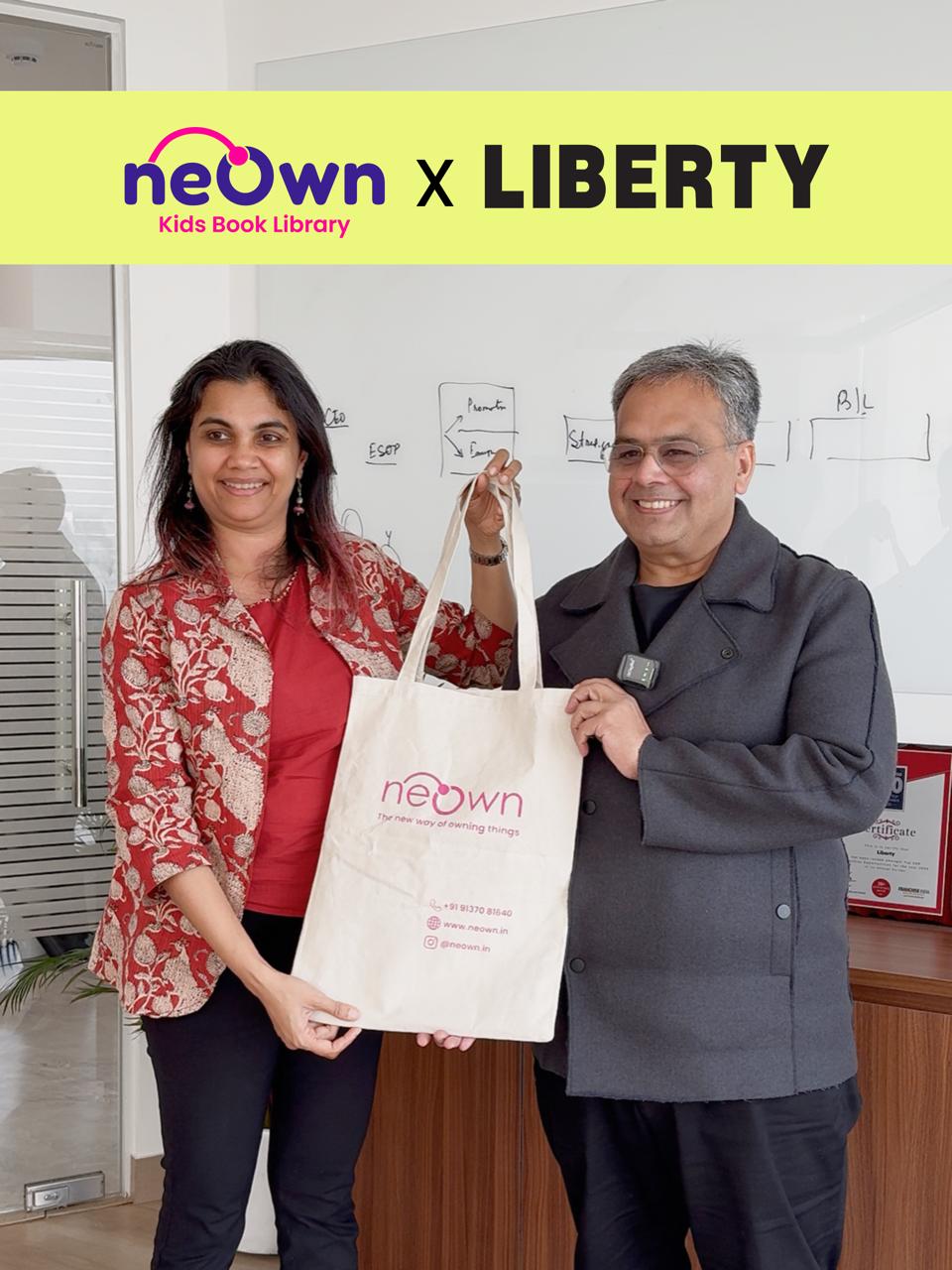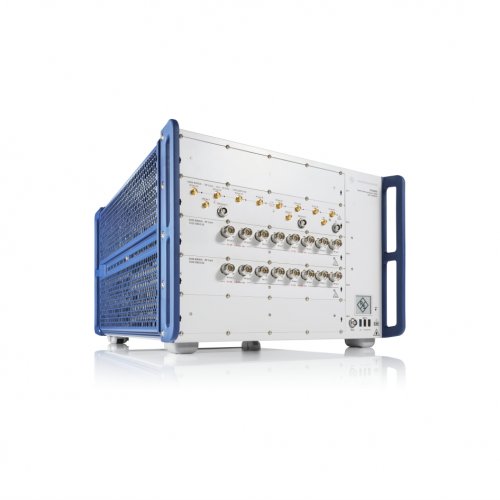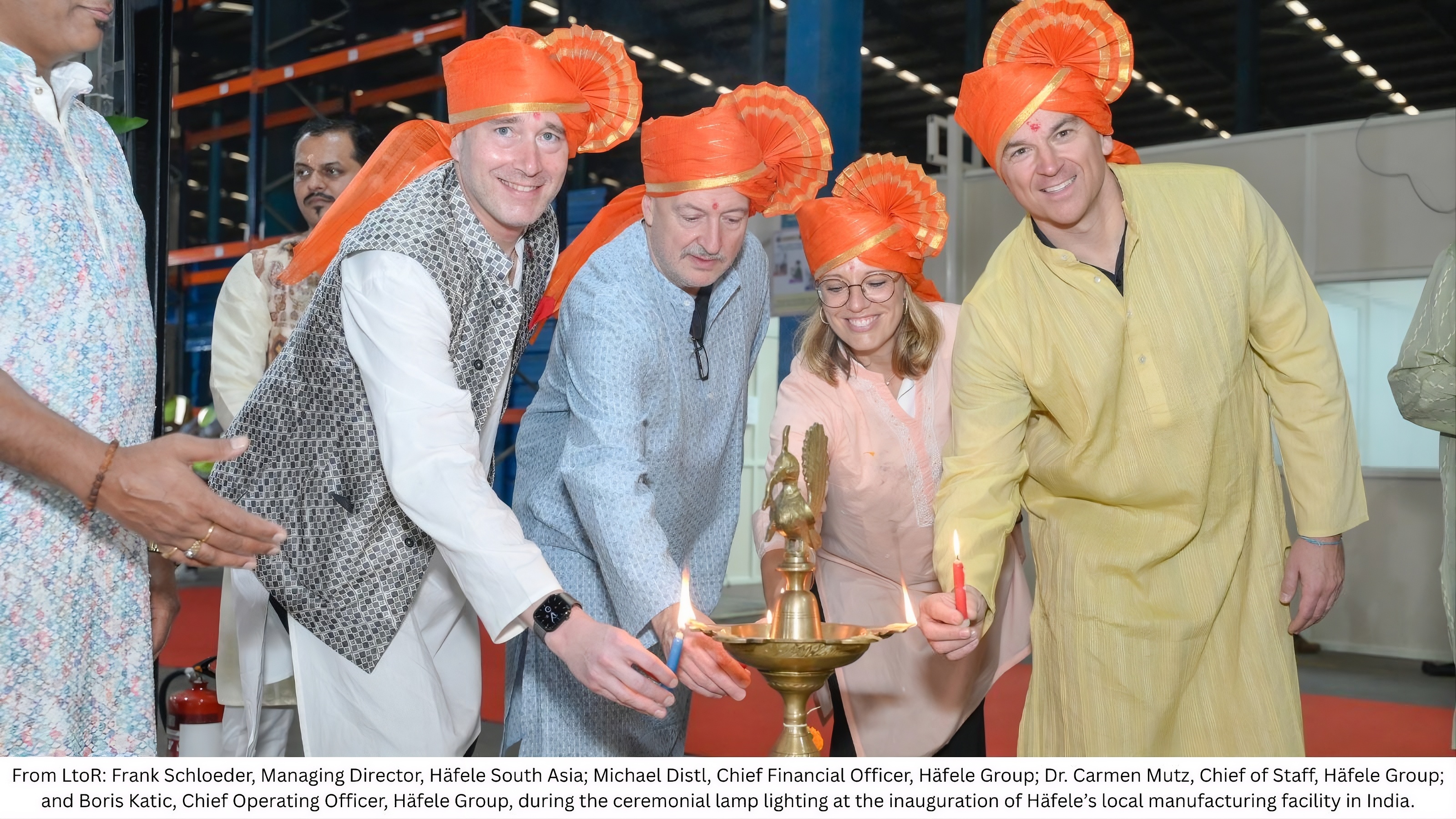2, Mar 2026
Tenable Research Reveals Growing AI Exposure Gap Fueled by Supply Chain Risks and Lack of Identity Controls
Dubai, UAE. – (Mar 2) – Tenable® (NASDAQ: TENB), the exposure management company, today released its Cloud and AI Security Risk Report 2026. The research reveals organizations face a zero‑margin AI exposure gap as they inherit cyber risks faster than they can address them. Engineering velocity — driven by AI adoption, third-party code and cloud scale — has outpaced the human-led ability to assess, prioritize and remediate risks before threat actors exploit them.
The AI Exposure Gap is a largely invisible form of exposure that emerges across applications, infrastructure, identities, agents and data, and that most security teams are not equipped to manage. Tenable’s analysis of cloud environments identifies severe risks across four key security areas: AI security posture, supply chain attack vectors, least privilege implementation and cloud workload exposure — all of which demand immediate attention. The report includes actionable guidance for security and business leaders to reduce risk across cloud and AI environments.
Key findings from the Cloud and AI Security Risk Report 2026 include:
● 70% have integrated at least one AI or Model Context Protocol (MCP) third-party package, embedding AI deep into applications and infrastructure, often without central security oversight.
● 86% host third-party code packages with critical-severity vulnerabilities, making the software supply chain a primary and persistent source of cloud exposure. Furthermore, nearly 1 in 8 (13%) have deployed packages with a known history of compromise, such as the s1ngularity or Shai-Hulud worms.
● 18% of organizations have granted AI services administrative permissions that are rarely audited, creating a “pre-packaged” catalog of privileges for attackers to claim.
● Non‑human identities such as AI agents and service accounts now represent higher risk (52%) than human users (37%), forming “toxic combinations” of permissions and access that fragmented tools fail to connect.
● 65% possess “ghost” secrets—unused or unrotated cloud credentials—with 17% of these tied specifically to critical administrative privileges.
● 49% of identities with critical-severity excessive permissions are dormant.

“AI systems embedded in infrastructure pose a critical risk that CISOs and defenders must address, in addition to anticipating emerging threats from both AI and cloud technologies. Lack of visibility and governance means teams are at the mercy of new exposures, including over-privileged identities in the cloud,” said Liat Hayun, Senior Vice President of Product Management and Research at Tenable. “By focusing on the unified exposure path, organizations can stop managing ‘security debt’ and start managing actual business risk.”
To manage emerging risks, organizations must secure the AI integration process through comprehensive visibility and identity-centric controls. This includes enforcing least privilege for AI roles, neutralizing “ghost” identity risk and eliminating static secret exposure. Third-party code and external accounts are now extensions of organizations’ infrastructure; steps to reduce extended supply chain exposure include unifying visibility across code packages, virtual machines, identity access and cloud environments.
The 2026 Cloud & AI Security Risk Report presents findings from the Tenable Research team, analyzing anonymized telemetry from diverse public cloud and enterprise environments collected from April to October 2025 (AI findings extended through December 2025).
Exposure Management is the practice of identifying, evaluating, and prioritizing the risks posed by all entry points an attacker could exploit. This includes not just software vulnerabilities (CVEs), but also misconfigurations, excessive user privileges (identity risk), cloud security gaps, and the “shadow” assets created by AI and third-party supply chains.
- 0
- By Neel Achary
2, Mar 2026
TEDxHRCollege 2026 Explores “Beyond the Horizon” at Its 11th Edition

Mar 2:TEDxHRCollege is the official TEDx platform of HR College of Commerce and Economics, created to bring the global spirit of TED to a student-led stage in Mumbai. Marking its 11th edition, TEDxHRCollege was held at the C.K. Nayudu Banquet Hall, Cricket Club of India, under the theme “Beyond the Horizon.” Independently organized by students and licensed by TED, the event embodied the mission of “Ideas Worth Spreading,” encouraging audiences to challenge boundaries and envision possibilities beyond the visible.
The event commenced with a classical performance followed by welcome addresses by Principal Dr. Pooja Ramchandani and Head Organizer Ms. Palak Gala.
The speaker lineup featured diverse voices across leadership, literature, and corporate foresight:
Mr. Bharat Dash, management professional, reflected on the enduring relevance of the Panchatantra, contrasting its emotional intelligence and storytelling depth with conventional presentation formats.
Mr. Yusuf Poonawala, entrepreneur and author of The Balanced Leader, delivered “When Everything Burns Down, What Remains?”, urging audiences to build character, values, and resilience beyond titles and applause.
Ms. Alpa Vora, Child Protection Specialist at UNICEF India, spotlighted youth-led initiatives in Maharashtra that safeguard children’s rights and strengthen communities.
Ms. Kaveri Ingale explored leadership through cinematic narratives, emphasizing courage, accountability, and authenticity as everyday practices.
Mr. Vesmir, poet and author, examined the cognitive and emotional implications of over-reliance on AI, advocating literature as essential for human resilience.
Ms. Kamayani Nagar, Head of Retail at Aditya Birla Sun Life, spoke on preparing for corporate life in 2036, highlighting adaptability, AI literacy, ethical judgment, and continuous learning as future essentials.
Ms. Priyadarshini Indalkar, acclaimed Marathi actress, addressed the “Fear of Failure,” encouraging resilience, empathy, and authenticity in navigating personal and professional challenges.
The event would not have been possible without the unwavering support and guidance of our Principal, Dr. Pooja Ramchandani, and our Faculty In-Charge, Prof. Chandani Bhattacharjee. Their constant encouragement, trust and thoughtful mentorship laid the foundation for its success. Their belief in our vision empowered us to execute the event with confidence, responsibility, and excellence.
Beyond being a platform for ideas, TEDxHRCollege is a transformative learning experience. It enables students to build strong communities while developing leadership, communication, hospitality, and problem-solving skills. By taking ownership of real responsibilities, students grow not only as organizers but as capable, confident individuals ready to lead beyond the horizon.
2, Mar 2026
First Industry-Integrated MSc in Industrial Biotechnology Graduates in Bengaluru
University of Glasgow and Biocon Academy Celebrate First Graduating Cohort of Industry-Integrated MSc in Industrial Biotechnology
Bengaluru, Mar 02: In a landmark India-UK higher education collaboration, the first cohort of the MSc in Industrial Biotechnology, jointly delivered by the University of Glasgow and Biocon Academy, graduated in Bengaluru on 27 February 2026.
The programme is designed to bridge academic excellence with practical industry experience, combining rigorous classroom learning with structured immersion at Biocon. Graduates gained hands-on exposure to biopharma manufacturing, industrial scale-up, and applied biosciences, equipping them with skills aligned to the needs of India’s growing biotechnology sector.
Addressing the graduates, Kiran Mazumdar-Shaw, Executive Chairperson of Biocon, emphasised the importance of integrating academic knowledge with real-world industry experience to develop globally competitive biotechnology professionals.
The programme reflects a pioneering model of employability-focused education, positioning Bengaluru as a hub for biotech innovation and advanced life sciences training. Graduates of the course now possess a unique combination of theoretical understanding and practical expertise, preparing them for leadership roles in the biopharma and industrial biotechnology sectors.
2, Mar 2026
VST Tillers Tractors Wins Best Farm Machinery Display & State Excellence Award at Global Agro Tech 2026

Uttar Pradesh, India | Mar 2: VST Tillers Tractors Ltd, a pioneer in farm mechanization and an undisputed leader in the power tiller segment, has been conferred with the prestigious State Excellence Award at Global Agro Tech 2026, held in Uttar Pradesh. The award was presented by H.E. Anandiben Patel, Hon’ble Governor of Uttar Pradesh, to senior officials of the company in recognition of its pioneering contribution to advancing small and compact farm mechanization in India. In addition to this recognition, VST also received the Best Stall Display Award for showcasing a comprehensive portfolio of innovative farm mechanization solutions tailored to diverse agricultural needs.
At the exhibition, VST displayed its complete range of products spanning from 5 HP to 50 HP, offering integrated solutions for key segments including sugarcane cultivation, orchard farming, and inter-cultivation operations. The display highlighted VST’s commitment to enabling small and marginal farmers with efficient, cost-effective, and technology-driven farm equipment.
The VST stall at the event attracted significant interest from farmers, agri-entrepreneurs, dealers, and policymakers, demonstrating VST’s leadership in compact tractors, power tillers, and specialized farm machinery designed for Indian farming conditions. The recognition at Global Agro Tech 2026 further reinforces VST Tillers Tractors’ position as a frontrunner in sustainable and scalable farm mechanization, supporting enhanced productivity and rural prosperity across the country.
2, Mar 2026
United Way Bengaluru Announced as Philanthropy Partner for TCS World 10K Marathon 2026

Bengaluru, Mar 2: United Way Bengaluru (UWBe) proudly steps up as the official Philanthropy Partner for the TCS World 10K Marathon, scheduled to be held on April 26, 2026, in Bengaluru.
This year, UWBe provides a structured fundraising platform that empowers participants to support credible grassroots initiatives in education, environment, women empowerment, sports, healthcare, and community development.
As a trusted partner, UWBe ensures every contribution undergoes rigorous due diligence and monitoring, directing funds precisely to the communities that need them most.
For United Way Bengaluru, this is more than just a run; it’s a powerful opportunity for corporates, communities, and individuals to unite and drive meaningful change. Through transparent processes, UWBe connects supporters with NGOs creating real impact on the ground. United Way Bengaluru requests corporates, CSR leaders, NGOs, institutions, and passionate individuals to join hands as changemakers. Participate in the run, fundraise, and turn steps into lasting progress.
2, Mar 2026
Motovolt celebrates Holi with ‘Apni Ride, Apna Rang’ themed multi-regional creator-led digital film campaign
Kolkata, Mar 02: Motovolt Mobility, an advanced and reliable electric two-wheeler solutions provider, welcomes the festive spirit of Holi with a collaborative digital film featuring multiple regional influencers coming together to capture and celebrate the excitement, vibrancy and bonds associated with the festival. The film, conceptualised in-house, follows the theme of Apni Ride, Apna Rang andhas been executed by brandsadvert, the brand’s influencer marketing and campaign partner.

Designed as a high-energy festive moment, the film brings together four creators from different content niches, each adding their own personality and rhythm to the narrative. Shot on the streets of Kolkata, with the colourful Deodar Street forming the visual backdrop, the film captures a festive morning that slowly builds into a shared celebration. What begins with quiet anticipation soon turns into playful colour exchanges, laughter and spontaneous ride moments, reflecting how celebrations unfold naturally in real life. Following the film’s theme, the story moves from individual moments to collective energy, fun chases on electric bikes and playful banter amongst friends.
Commenting on the digital film, Mr Tushar Choudhary, Founder & CEO, Motovolt Mobility,said,
“The celebration of Holi is incomplete without colours, friends, and a trusted mobility companion. This Holi film captures that spirit by placing the e-bike within real, shared moments of celebration, where movement and togetherness naturally come together. At Motovolt, our focus has always been on making mobility feel effortless and approachable. Our URBN e-bikes are designed to fit into everyday routines and moments that matter, not just as a way to move, but as a companion in how people experience their surroundings and connect with others.”
Manoj Kumar, Co-founder, brandsadvert, said,
“Holi is one of the most expressive festivals in India, and for Motovolt, we brought together creators from different niches to build a shared narrative that travels across their communities, making the celebration and the brand’s mobility story more relatable. The idea was to show mobility as something that naturally fits into everyday experiences — whether it’s meeting people, moving through the city or celebrating together.”
The campaign highlights a shift in festive communication, where brands increasingly focus on lived experiences rather than staged messaging. By grounding the story in a real city setting and real creator personalities, Motovolt’s ‘Apni Ride, Apna Rang’ digital film connects celebration with everyday mobility in a way that feels familiar and relatable.
2, Mar 2026
Liberty Shoes Partners with neOwn to Bring India’s Reading Revolution to Bangalore

March 02: Liberty Shoes Limited, one of India’s leading footwear brands, has announced a partnership with neOwn, India’s first app-based book rental service for children. For a month, all 25 Liberty stores across Bangalore will provide customers with an exclusive ₹500 discount voucher, with every liberty purchase, redeemable on any neOwn subscription. Liberty‘s approach positions this offer as added value for customers.
neOwn, founded by Kranti Gada (former COO of Shemaroo Entertainment Ltd.), appeared on IdeaBaaz and earned the attention and support of retail industry leader Anupam Bansal, Executive Director of Liberty Shoes, who was one of the Titans on the show.
Discussions between the two companies led to this collaboration, positioning Liberty as a brand that invests not just in children’s footwear, but in their holistic development.
The collaboration represents a shift in how physical retail can add value beyond transactions. Rather than simply completing a sale, Liberty stores now offer parents an opportunity to invest in their children’s cognitive development alongside their physical growth.
“I am deeply grateful to Mr. Bansal for seeing the potential in what we are building,” said Kranti Gada, Founder of neOwn. “Mr. Bansal offered valuable insights from being in the retail business for decades, along with access to Liberty‘s retail infrastructure. This partnership validates our mission in a way that goes beyond capital. It is a testament to the power of believing in a shared vision: that every child deserves to be introduced to books early to grow confident, both physically and mentally.”
“Business today has evolved beyond commercial transactions. Today’s customers are looking for brands that add real value to their lives.” says Mr. Anupam Bansal, Executive Director, Liberty Shoes, “When I met Kranti on IdeaBaaz, I saw a founder who is building something that genuinely helps parents raise confident children. Liberty has the retail infrastructure to help scale that impact. Sometimes the best partnerships aren’t about funding, they are about finding aligned missions and acting on it together. Good shoes give children the physical confidence to explore the world. Good books give them the mental tools to understand it. This partnership makes both accessible to the families who trust Liberty. It’s a natural fit.”
The partnership is supported by a co-branded social media campaign highlighting the connection between physical and mental development in children. Both brands are creating educational content for parents around building confidence through holistic growth.
The Bangalore pilot represents the first phase of what could become a model for similar partnerships nationwide, demonstrating how established brands can support emerging startups while adding meaningful value for customers.
2, Mar 2026
Rohde & Schwarz demonstrates FR1–FR3 carrier aggregation, advancing 6G readiness
Mar 2: Rohde & Schwarz and Qualcomm Technologies, Inc. have reached another pivotal milestone in 6G research and ecosystem readiness, successfully demonstrating carrier aggregation across FR1 and FR3 frequency ranges. The joint achievement is showcased live at MWC Barcelona 2026.

The CMX500 one box tester is ready for 6G research with the new modular RFU18 board.
At MWC Barcelona, Rohde & Schwarz and Qualcomm Technologies present a live demonstration at the Rohde & Schwarz booth (5A80) that aggregates a mid-band channel around 2.5 GHz (FR1) with an upper mid-band channel around 7 GHz (FR3), using 4×4 MIMO on both bands and higher-order modulation. With this setup, the two companies validate end-to-end device behavior across the aggregated spectrum.
At the heart of the test setup is the CMX500 one-box signaling tester from Rohde & Schwarz, extended with the new RFU18 board to provide coverage up to 18 GHz. RFU18 is a modular hardware upgrade for the CMX500 platform, giving customers a straightforward, cost-effective path to extend existing testers towards 6G. As device under test (DUT), Qualcomm Technologies provided a Mobile Test Platform (MTP) powered by the Qualcomm® Modem-RF System, enabling comprehensive validation of RF performance and protocol behavior across the aggregated FR1 and FR3 bands.
The FR3 frequency range (7.125 to 24.25 GHz) has been identified by industry and research as a “sweet spot” for combining wide-area coverage with high capacity. FR3 in terrestrial networks (TN) and non-terrestrial networks (NTN) is expected to support demanding applications such as eXtended Reality (XR), connected and autonomous vehicles and industrial automation. By validating FR3 as an additional frequency range for future networks, the partners are helping accelerate 6G development and ecosystem readiness.
Goce Talaganov, Vice President Mobile Radio Testers at Rohde & Schwarz, said: “Through our ongoing collaboration with Qualcomm Technologies, we continue to push the boundaries of wireless communications. As the ecosystem moves toward 6G, we’re showing how easy innovation can be with our test equipment. In response to customer demand, we are extending the CMX500 platform to 18 GHz – so that our customers gain headroom for FR3 evolution and higher-frequency emissions and harmonic testing.”
Tingfang Ji, Vice President of Engineering and Head of 6G Research at Qualcomm Technologies, Inc. said: “Our collaboration with Rohde & Schwarz highlights the importance of aggregating existing spectrum bands with new 6G spectrum in FR3 to establish 6G as the high efficiency digital infrastructure for the 2030s. By validating new spectrum layers and advanced RF capabilities using our MTP powered by Qualcomm Modem-RF System, we are accelerating innovation across the ecosystem and helping prepare devices and networks for the next-generation of services.”
Future-ready CMX500 platform for 6G:
The CMX500 is a modular, powerful and future-proof one-box signaling tester enabling comprehensive multi-technology testing – from RF to protocol – across all relevant frequency ranges (FR1, FR2 and FR3). All existing CMX500 platforms can be enhanced with the new RFU18 board to extend frequency coverage and capabilities without replacing the entire system, offering users a simple upgrade path.
Engineered for data rates up to 20 Gbps, the CMX500 is one of the most versatile mobile device test platforms, supporting wide dynamic range, 4096QAM and up to 16 device antenna ports for advanced spatial multiplexing. With its multi-band capabilities, it covers LTE and NR in SA/NSA modes, NR-NTN, NB-NTN, Direct-to-Cell (D2C/DTC) testing, and WLAN including Wi‑Fi 7 and future Wi‑Fi 8.
Visitors to MWC Barcelona 2026 can experience the joint demo of FR1–FR3 carrier aggregation at the Rohde & Schwarz booth 5A80 in hall 5 from March 2 to 5, 2026, and can learn from the company’s experts how the CMX500 platform with RFU18 enables faster 6G device and network innovation.
2, Mar 2026
Navonmesh 2026 – A Grand Innovation Carnival at Scope Global Skills University, Bhopal
Mar 02: Navonmesh 2026, the largest student festival in Central India, will be hosted at SCOPE Global Skills University, the region’s first skills university. Organized in collaboration with the Atal Incubation Centre – Rabindranath Tagore University (AIC‑RNTU), the festival is envisioned as a premier platform to foster entrepreneurship, creativity, and technology‑driven solutions among youth.
With over 10,000 participants expected, including students, startups, business leaders, investors, policymakers, and members of the startup ecosystem, Navonmesh 2026 promises to be a vibrant celebration of innovation. Participants will have the opportunity to win awards worth up to INR 5 lakh.
Innovation League Highlights
- InoMaker – Product Showcase: UG/PG students present cutting‑edge prototypes with expert guidance and incubation opportunities
- PlanX – Business Plan Battle: A pitch competition where students and startups refine business ideas before an investor jury.
- Binary Battle – Software Hackathon: A 24‑hour coding challenge with mentorship from industry professionals.
- Ad Mad Show: Creative advertising competition for startups and social causes.
- Robo Warriors: Robotics contest testing engineering and strategic skills.
- Controller Clash: Mobile gaming e‑sports tournament for teams of four (players under 24 years).
Creative League Highlights
- Solo Spotlight: Dance championship.
- Crew Clash: Group dance competition.
- Tellers: Storytelling championship.
- Chef’s Arena: Cooking championship.
- Mic Drop: Music championship.
- BizAI Quiz: Business and AI quiz.
International Conference on Emerging Technologies in Artificial Intelligence
As part of Navonmesh 2026, SCOPE Global Skills University will host an international conference on March 12–13, focusing on emerging technologies in AI.
Categories:
- Research Paper Competition (8–10 pages)
- Poster Competition (A1 size, structured presentation)
- AI Tool/Product Competition (1,000‑word write‑up with 5–7-minute demo video)
Themes:
- Core AI Technologies: Machine Learning, Deep Learning, NLP, Computer Vision, Robotics, Generative AI, Ethical AI
- AI in Science & Technology: Biotechnology, Agriculture, Healthcare, Sustainability, Engineering Design, Smart Manufacturing
- AI in Society & Governance: Media, Art, Culture
- Cross‑Cutting Issues: AI Ethics, Law, Human Rights, Cybersecurity, Data Privacy, Human‑AI Collaboration, AI for SDGs
- AI in Defense: Cybersecurity, Information Warfare, Training & Simulation, Security & Intelligence, Enhanced Defense Technologies
2, Mar 2026
Hafele Strengthens “Make in India” Commitment with New Local Production Setup
Hafele announced the commencement of operations at its new local production setup in Maharashtra, India, marking a significant milestone in the company’s long-term localisation strategy and reinforcing its commitment to the Government of India’s “Make in India” initiative. This development represents a strategic step toward building a future-ready manufacturing ecosystem in the country, enabling local value creation while laying the groundwork for scalable operations.

Hafele’s global manufacturing and supply chain network already includes production facilities across Europe, forming a strong foundation of manufacturing excellence. The India production initiative builds on this established base, extending the company’s capabilities into one of its most strategically important growth markets.
In its initial phase, Hafele has commenced production with the MatrixBox Premium+ range of drawer systems—a solution designed to enhance functionality and durability in modern kitchens. Engineered for smooth soft-close and noiseless performance, the system supports heavy-duty usage and offers extensive design versatility through multiple premium finishes and customisable add-ons. This milestone marks the beginning of Hafele’s manufacturing strategy in India, with the setup created to enable the phased addition of further products and categories over time, aligned with market needs and long-term localisation plans.
This initial production site enables an early start to local manufacturing while Hafele simultaneously develops its larger-scale manufacturing hub to support future growth and expanded operations in India.
The initiative has been conceived as a strategic enabler within Hafele’s broader localisation roadmap. It supports early capability building, workforce training, process validation, and supply-chain stabilisation—while enabling more agile and efficient operations aligned with evolving market needs.
As part of strengthening its local manufacturing ecosystem, Hafele has expanded its Service+Customised capabilities in India. The company now produces bespoke aluminium profiled cabinet fronts at its dedicated set-up in Mumbai. These customised aluminium fronts are pre-assembled and pre-drilled to ensure precision, consistent quality, and efficient installation across kitchen, wardrobe, and furniture applications. By bringing this capability in-house, Hafele enhances design flexibility, improves lead times, and creates greater value for its channel partners—further advancing its long-term localisation strategy.
Sharing a global perspective, Michael Distl, Chief Financial Officer, Hafele Group, stated:
“Strengthening our global production network requires strategic investments in key growth markets like India. This initiative enables early process validation, enhances financial efficiency, and builds organisational readiness, while ensuring that governance, quality, and compliance standards remain fully aligned with Hafele’s global benchmarks.”
Highlighting operational significance, Boris Katic, Chief Operating Officer, Hafele Group, added:
“Building strong manufacturing capabilities begins with people, finding the right processes and supply chains. This initiative is part of our broader vision to decentralise global supply chains by creating strategic sourcing and production hubs in key regions, thereby strengthening our position as a manufacturing-driven organisation and extending our production footprint closer to the markets we serve. In this context, India is poised to play a pivotal role, not only serving domestic demand, but also evolving into a hub that supports global markets in the years ahead.”
Commenting on the development, Frank Schloeder, Managing Director, Hafele South Asia, said:
“This marks a decisive step forward in our ‘Make in India’ strategy. It enables us to build manufacturing capabilities locally, nurture talent, and respond faster to the needs of the Indian market. India continues to be a strategic growth market for Hafele, and this milestone reinforces our long-term commitment to local value addition and operational excellence.”
The initiative supports Hafele’s long-term strategy of increasing localisation by lowering reliance on imports, strengthening supply-chain resilience, and enabling faster, more agile responses to the needs of the Indian and South Asian markets, while creating a strong base for scalable and sustainable manufacturing operations in the years ahead.







